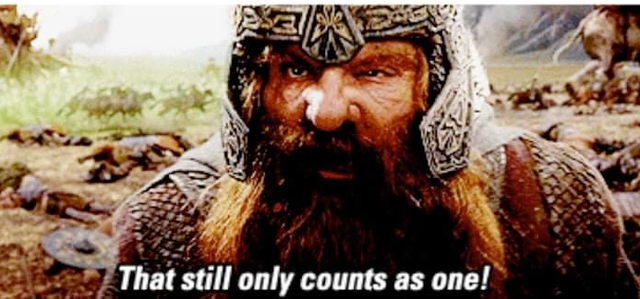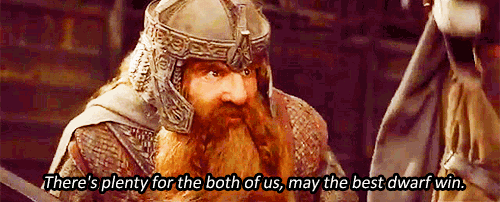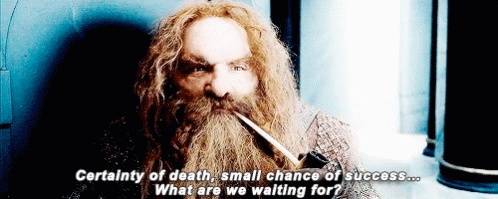Rolling Your Team RPG Style
As hard as it is for some people to believe, developers are not robots, we are human beings. Even harder to believe, we each have unique personalities. Some days it feels like we are in a bad enterprise commercial. We each speak to our own “sport”, explaining that we actually did(do) something else with our lives besides stare at code all day and manage expectations. I don’t know about you, but it’s weird. While we are aware of this, we rarely seem to leverage our personalities when forming teams and taking on a project. We should be more self-aware and pay attention to the types of people we interact with mixing our personalities to shape how we operate in our day-to-day.
There are many ways to get a glimpse into your friends and co-workers' personalities, Myers-Briggs, Enneagram, Karaoke, etc. Keeping the geeky stereotype alive I wanted to compare some of these personality traits to that of an RPG (role-playing game) character. People spend countless hours in what is called “rolling a character” or creating the perfect combination of skills to mix with their playing style. They spend even more time pairing a character with others to ensure a successful mission in the game. The goal is to understand your character’s strengths and weaknesses in hopes to find a balance with your teammates. So why don’t we take the time to do this in real life?
If you’ve never played a role-playing type game before, don’t worry the breakdown is fairly simple to pick up. I’ll be alluding to these types of characters:
- The Scout (Planner, lookout)
- The Tank (Shield, Protector)
- The Melee Attacker (up close, swords, axes, hammers)
- The Ranged Attacker (Archer, Mage)
- The Rogue (Sneaky Specialist)
- The Healer (Support)
- The Dungeon Master (Narrator/Organizer)
For the avid gamer’s out there — These roles are being defined generally for the purpose of this article… Don’t overthink it. Pew Pew
The Scout
The primary job of the scout is to move ahead of the team and alert back with any potential traps, enemies, or danger that fall ahead. Once the team has caught up, the scout either continues ahead or assumes a lookout type of position calling out more potential threats. They feel validated when the team is informed and prepared for what comes next.
The Tank
The tank’s job is not to finish the mission but to hold the attention of the boss while the rest of the team takes care of business. The tank is a guardian and protector. Covered in armor and carrying a shield they are there to serve as a barrier. The tank will also guide the team, calling out what to focus on next during battle. They feel validated when the team is unharmed and able to press forward.
The Melee Attacker
Typically right behind the tank is another armor-clad warrior carrying a large ax. Normally with a bit of a chip on their shoulder, these folks just want to, what the gaming community refers to as, ‘smash and bash’. The melee attackers prime goal, a headcount. With large sweeping motions the melee attacker will jump headfirst into a mob of enemies attempting to clear the field. They feel the most validated when they see the carnage left behind them knowing every enemy has been slain.
The Ranged Attacker
Similar to the melee attacker, the goal here is to clear the field. However, the ranged attacker always seems to be a bit more specialized in their area and able to focus on objectives and typically single targets. Surprisingly enough the melee attacker cannot just charge through and expect to make it out alive. They get cocky… the ranged attacker knows this and has their back. As the melee starts clearing the field and moving forward, ranged support picks off targets missed by or flanking the warrior. However helpful, this is not their sole job. Ranged support can also pair with the scouts and start carving the battlefield to move the team forward. A friendly competition normally occurs between the melee and ranged folks about which approach is better, but you need both to succeed. They also feel validated when the field is clear and the job is done.

The Healer
The healer’s job may be obvious but painfully underappreciated. Their goal is to renew the team, keep morale, and keep everyone alive. The healer can support in a variety of ways, healing obviously, but if planning has gone according to plan at this point the healer may join the battlefield in their own way supporting and picking off enemies. Typically though they keeping everyone else on the battlefield. It always came as a shock to me in games that Healers often had an ability to support their teammates for a short time after death. It’s like the game knew they were set up to die… They are validated when everyone survives and remains in good health. The battle is not over for them until everyone makes it home.
The Rogue
The team is in the middle of battle, plans are going according to plan, enter the unknown… There’s a new threat on the horizon but the team is too preoccupied. Shifting away from their own duties would surely mean death. Enter the specialist. A rogue has been hiding in the shadows this whole time observing the battle, without anyone knowing. Their ability to enter and exit the battlefield gives them the prime opportunity to pick off this new threat before the team is overwhelmed. Their strength, however, is also a weakness, once spotted, they are in the battle for the long haul. Generally specialized, the rogue has been waiting for the best moment to strike, making the best use of their abilities for the team before entering the fight. They are validated when they can remain unseen and continue to strike from the shadows.
The Dungeon Master
Who signed us up for this war anyway? All a sudden I’m with these other people and we are just supposed to make it work. Why was I chosen? Enter the DM (PM). The DM got word of a looming threat via messenger. With little information to go off of, the DM sought you and your teammates out to fulfill the need. While the mission may not be exciting, the pay is good. The DM is validated when missions are successful and the team returns victoriously excited for their next adventure.
Rolling your Character and Team
So which are you? Naturally, our personalities will lean toward one or the other. Do you prefer to just smash through work with brute force, or do you care more about keeping your team alive and well? For a developer team, these roles can even be mapped out by company roles. There’s normally a Project Manager informing the team of its next client (mission) while distracting the client and boss as the team presses on. A Lead Developer may take the scout position, spiking out solutions ahead of time observing possible pitfalls and scope creep. A few more developers start clearing the field (tickets) before inevitably unknown scope does creep in. Enter the senior dev, you normally don’t see this person but today they were by your side, able to unblock you and your team to keep momentum on the project. You go to thank them… but they’re already gone, ** poof.
In truth, especially in consulting work, you’ll be called to fill all of these roles at some point, depending on the size of the team you may be fulfilling multiple roles. The trick, find the balance between the team. Know your own strengths and weaknesses and create momentum. What happens if you are thrown into a role you aren’t comfortable with? Make it known, for starters. Maybe there’s someone else better suited for the role. It’s not a bad thing. As humans, we are too fearful to miss out on opportunities and too proud to admit otherwise that we set ourselves and our team up for failure. We are taught that “No” is negative when in fact it’s just being transparent. Think about it, no one would argue with this phrase in a game “I’m an Ironclad warrior with a battle-ax, I probably shouldn’t be healing”. Know your strengths and weaknesses keep a balance.

What happens when no one else is available? Hopefully, there are people to reach out to… but that’s not always the case. Going with the same analogy above — You’re carrying a battle-ax and you see a teammate getting overwhelmed. You can’t heal them, so what do you do? You can’t just let them die — can you? At our core, regardless of personality and skill, we have the choice and ability to be a good human. Doing the right thing is not always easy, in this scenario, the goal is to survive and there is strength in numbers. You let your teammate know they’re not alone, you pick up your ax, and you get to work. Noting is ideal, but the worlds not perfect. You fight on, reassuring your teammate that someone has their back.
In the end, whether real-world projects or fantasy middle earth battles, remember to:
- Keep a balanced team
- Don’t kill your support
- Be self-aware, know your strengths and weaknesses.
- Don’t let pride overtake you
- Don’t let your friends fight alone
- Keep your tools sharp — there’s always another day
Until next time …




